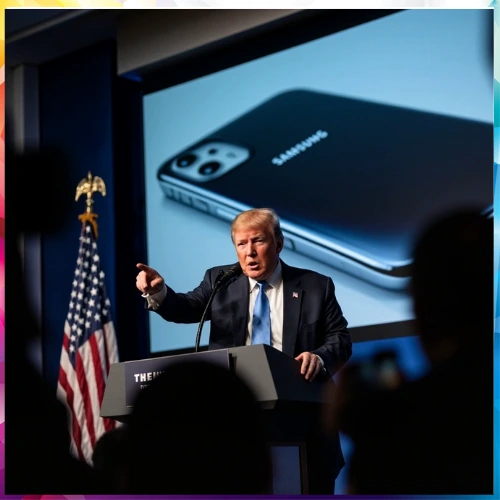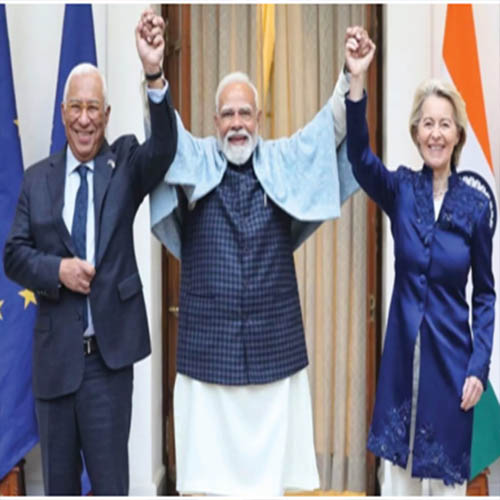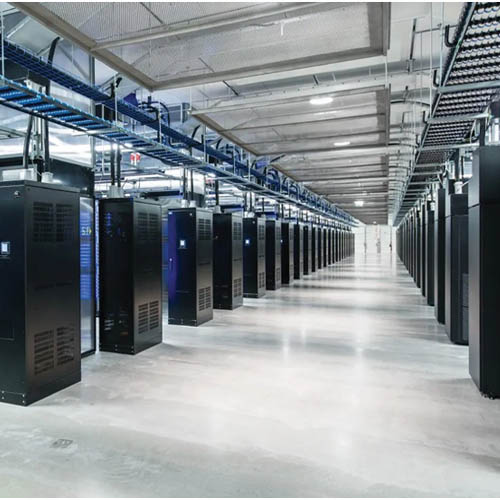
The announcement caused Apple shares to drop by $70 billion as pressure mounts on tech firms to localize manufacturing within the U.S.
U.S. President Donald Trump has proposed a sweeping 25% tariff on all smartphones manufactured outside the United States, directly targeting industry giants like Apple and Samsung. The proposal, which echoes Trump’s previous “America First” trade policies, comes as he intensifies calls for major tech companies to localize their manufacturing operations within U.S. borders.
Initially perceived as a direct response to Apple’s growing reliance on India for iPhone production, Trump clarified that the 25% tariff threat to Apple would also extend to other players in the global smartphone market. “It would be more. It would be also Samsung and anybody that makes that product. Otherwise, it wouldn’t be fair,” Trump stated. This marks a significant shift, as Donald Trump now targets Samsung—a South Korean tech powerhouse that, unlike Apple, already manufactures some of its devices in the U.S.
Impact on Apple and Samsung
The announcement immediately impacted the market, with Apple’s shares plunging by $70 billion, signaling investor concern over the potential disruption in its supply chain and profit margins. While Samsung vs Apple competition has long been defined by technological innovation and market share, Trump’s proposed import duties could upend the playing field by penalizing overseas production, regardless of company origin.

Samsung, which manufactures a portion of its devices in Vietnam, India, and South Korea, could face significant challenges if forced to ramp up U.S.-based production to avoid the tariff. Meanwhile, Apple—already under scrutiny for moving production out of China—would face additional pressure to invest in domestic manufacturing infrastructure, which may not be feasible in the short term.
Political Motivation and the Trade War Context
Trump’s remarks reflect a broader narrative tied to the U.S.–China trade war, during which he introduced aggressive tariffs to reduce reliance on foreign manufacturing and push companies to bring jobs back to the U.S. This latest move signals that such protectionist strategies remain central to his economic platform, especially ahead of the upcoming election cycle.
While Apple import tariffs have been a recurring talking point in Trump’s trade agenda, the latest comments add a new dimension by drawing Samsung into the crosshairs—potentially straining U.S. relations with South Korea and complicating global supply chains.
The proposed Trump Apple tariff and his warning to Samsung underscore the escalating tension between political agendas and globalized tech production. As Trump renews his push for U.S.-based manufacturing, companies like Apple and Samsung may be forced to reevaluate their global supply strategies, setting the stage for a new chapter in the US-China trade war and reshaping the future of the smartphone industry.
Also Read: Federal judge halts Trump administration’s Harvard foreign student ban
See What’s Next in Tech With the Fast Forward Newsletter
Tweets From @varindiamag
Nothing to see here - yet
When they Tweet, their Tweets will show up here.





























